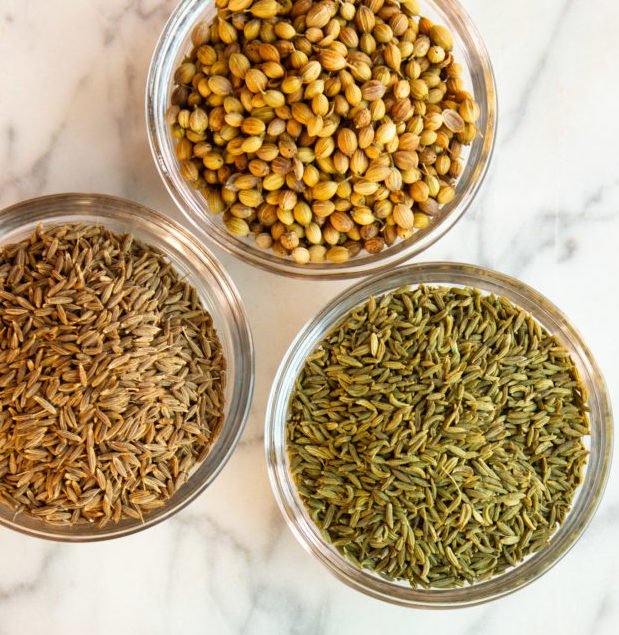Essential Ayurvedic practices
Ayurveda is an ancient holistic well-being science that originated in India. More than a diet or a cure, Ayurveda offers us an approach to life that favours prevention and longevity. When we live according to Ayurvedic wisdom, we’re equipped with the tools on how to structure our lives for optimal health and radiance.
One of the most beautiful and unique fundamentals of Ayurveda is the recognition that no two people are the same, and therefore we cannot adopt a one-size-fits-all approach. We could give three people the exact same meal, and each of them would have a different experience. One person may feel light and energised, the next might experience bloating and constipation and the third person may end up feeling sluggish and tired. Ayurveda offers us a framework to learn how to observe our physical, mental, emotional and spiritual bodies, and what foods, practices, rituals and things will be most beneficial for bringing balance.
The one thing we all have in common though is that we are human beings – we all have a nervous system and we are all part of the macrocosm of nature. This means there are some practices and rituals everyone can introduce and experience benefits from. The following list is by no means exhaustive, and there’ll probably be part two of this post, but here are a few Ayurvedic practices and rituals for you to experiment with, and see how they benefit you.
Tongue scraping
Tongue scraping is often one of the first practices people integrate into their lives upon discovering Ayurveda. It’s done first thing upon waking, using a copper or stainless steel tongue scraper to remove the ama (toxins) that accumulate on the tongue overnight as a result of the body’s detoxification process. By scraping this off, we prevent those toxins from being reabsorbed back into the body. Tongue scraping also assists in maintaining a healthy mouth, removing bacteria and leftover food particles that brushing the tongue cannot remove.
How to tongue scrape
1 Brush the teeth (brushing dislodges bacteria that may settle on the tongue).
2 Take the tongue scraper and gently scrape from the back of the tongue towards the tip
3 Rinse off the debris then repeat a few more times.
4 Clean the tongue scraper well then leave to dry.
Image via Vital Veda
Align with the rhythm of the day
Ayurveda is based on natural law and reminds us that we are not separate from nature, but a part of it. Technology, bright lights and busy schedules mean we’ve forgotten this and often live in ways that ignore our fundamental need to follow the cycles of the day. We stay up late into the night, using screens that confuse our hormonal systems. We then sleep late, waking up long after the sun, feeling groggy, lethargic, and out of sorts. The ideal solution is to be awake by 6 am and in bed before 10 pm.
Eat your biggest meal at lunchtime
Our agni, or digestive fire, is a lot like the sun. In the morning it’s just starting to fire up and strengthen, and by the middle of the day it’s at its peak, and then in the afternoon/evening, it begins to go down again. Our digestion is the same, so we benefit from having a smaller breakfast when our agni isn’t so strong, our biggest meal of the day when the sun it at its peak and a smaller dinner when again our agni is lower.
Swap cold drinks for hot water
Cold water and icy drinks are one of the fastest ways to put out your digestive fire. Instead, sip warm to hot water throughout the day to keep your agni burning brightly. Hot water is also a great way to cleanse and detoxify. Just as we wouldn’t use cold water to clean a greasy pan, hot water helps to dislodge and flush out the waste and toxins that have accumulated.
Sip CCF tea
A simple tea made using kitchen spices and great for all three doshas, CCF tea is a blend of cumin, coriander and fennel seeds. CCF tea gently stokes the digestive fire, while also helping to aid digestion (great if you’ve overindulged!) as well as helping to reduce bloating, flatulence and nausea. I recommend making a big thermos in the morning to sip throughout the day.
How to make CCF tea
1 Mix together equal parts cumin, coriander, and fennel seeds and store in a glass jar.
2 Add 1 teaspoon of the spice mix per 250 ml of boiling water into a cup or teapot.
3 Infuse for 10 minutes then strain and enjoy hot.
Interested in experimenting with some Ayurvedic recipes? Take a look at our Ayurvedic recipe collection.





